第15章 CHAPTER VI(2)
An' the boys with the goats 's stopped to look. Everybody's lookin'.""And then?"
"That's all. The sick men are headin' for the houses. They ain't yellin' any more, an' they don't look sick any more. An' I just keep settin' on my horse a-lookin' on."At this all three of my listeners broke into laughter.
"An' I'm a big man!" I cried out angrily. "An' I got a big sword!""The ten lepers Christ healed before he passed through Jericho on his way to Jerusalem," the missionary explained to my parents. "The boy has seen slides of famous paintings in some magic lantern exhibition."But neither father nor mother could remember that I had ever seen a magic lantern.
"Try him with another picture," father suggested.
"It's all different," I complained as I studied the photograph the missionary handed me. "Ain't nothin' here except that hill and them other hills. This ought to be a country road along here. An' over there ought to be gardens, an' trees, an' houses behind big stone walls. An' over there, on the other side, in holes in the rocks ought to be where they buried dead folks. You see this place?--they used to throw stones at people there until they killed 'm. I never seen 'm do it. They just told me about it.""And the hill?" the missionary asked, pointing to the central part of the print, for which the photograph seemed to have been taken.
"Can you tell us the name of the hill?"
I shook my head.
"Never had no name. They killed folks there. I've seem 'm more 'n once.""This time he agrees with the majority of the authorities,"announced the missionary with huge satisfaction. "The hill is Golgotha, the Place of Skulls, or, as you please, so named because it resembles a skull. Notice the resemblance. That is where they crucified--" He broke off and turned to me. "Whom did they crucify there, young scholar? Tell us what else you see."Oh, I saw--my father reported that my eyes were bulging; but I shook my head stubbornly and said:
"I ain't a-goin' to tell you because you're laughin' at me. I seen lots an' lots of men killed there. They nailed 'em up, an' it took a long time. I seen--but I ain't a-goin' to tell. I don't tell lies. You ask dad an' ma if I tell lies. He'd whale the stuffin' out of me if I did. Ask 'm."
And thereat not another word could the missionary get from me, even though he baited me with more photographs that sent my head whirling with a rush of memory-pictures and that urged and tickled my tongue with spates of speech which I sullenly resisted and overcame.
"He will certainly make a good Bible scholar," the missionary told father and mother after I had kissed them good-night and departed for bed. "Or else, with that imagination, he'll become a successful fiction-writer."Which shows how prophecy can go agley. I sit here in Murderers'
Row, writing these lines in my last days, or, rather, in Darrell Standing's last days ere they take him out and try to thrust him into the dark at the end of a rope, and I smile to myself. I became neither Bible scholar nor novelist. On the contrary, until they buried me in the cells of silence for half a decade, I was everything that the missionary forecasted not--an agricultural expert, a professor of agronomy, a specialist in the science of the elimination of waste motion, a master of farm efficiency, a precise laboratory scientist where precision and adherence to microscopic fact are absolute requirements.
And I sit here in the warm afternoon, in Murderers' Row, and cease from the writing of my memoirs to listen to the soothing buzz of flies in the drowsy air, and catch phrases of a low-voiced conversation between Josephus Jackson, the negro murderer on my right, and Bambeccio, the Italian murderer on my left, who are discussing, through grated door to grated door, back and forth past my grated door, the antiseptic virtues and excellences of chewing tobacco for flesh wounds.
And in my suspended hand I hold my fountain pen, and as I remember that other hands of me, in long gone ages, wielded ink-brush, and quill, and stylus, I also find thought-space in time to wonder if that missionary, when he was a little lad, ever trailed clouds of glory and glimpsed the brightness of old star-roving days.
Well, back to solitary, after I had learned the code of knuckle-talk and still found the hours of consciousness too long to endure. By self-hypnosis, which I began successfully to practise, I became able to put my conscious mind to sleep and to awaken and loose my subconscious mind. But the latter was an undisciplined and lawless thing. It wandered through all nightmarish madness, without coherence, without continuity of scene, event, or person.
My method of mechanical hypnosis was the soul of simplicity.
Sitting with folded legs on my straw-mattress, I gazed fixedly at a fragment of bright straw which I had attached to the wall of my cell near the door where the most light was. I gazed at the bright point, with my eyes close to it, and tilted upward till they strained to see. At the same time I relaxed all the will of me and gave myself to the swaying dizziness that always eventually came to me. And when I felt myself sway out of balance backward, I closed my eyes and permitted myself to fall supine and unconscious on the mattress.